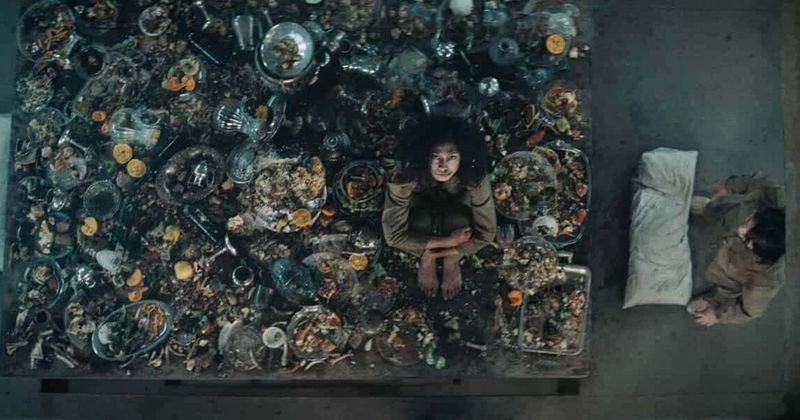Is Happiness an Illusion? Can Material Possessions Truly Make Us Happy?
“Choice is an illusion created between those with power and those without.”
— Karl Marx
Money has become the universal value by which all things are measured. In doing so, it has stripped the world of its intrinsic worth. The qualities that once formed the foundation of being human — compassion, connection, creativity — are being distorted by materialistic obsession. This leads to a lifeless future caught in a violent, invisible struggle.
We live in a world consumed by consumerism. People chase after products, experiences, and lifestyles that promise joy, superiority, or social acceptance. But this constant desire — whether to fulfil basic needs or to elevate one’s status — often clouds the true understanding of happiness.
Still, enjoying wealth or comfort does not necessarily equate to being materialistic. For some, money is a marker of status; for others, it’s about security, success, or self-worth.
Freedom, Politics, and the Illusion of Choice
The structure of modern society raises a fundamental question: Do we really have free will in a world so deeply driven by economic and political systems?
Even in so-called “free” societies, the idea of freedom of choice is often manipulated by those in power. The politics of a nation deeply influence not only the laws and systems that govern daily life but also the very way we define happiness.
When leaders prioritize limelight and personal wealth over human justice, the soul of a nation suffers. Whether in wealthy or developing countries — from the USA to India — we must ask: Are the people truly happy?
The honest answer is often no.
We are so obsessed with creating more money that we have taken the “humanity out of business.” Governments could — and sometimes do — implement policies like free healthcare, mental health support, education, and basic income. But funding these programs requires more capital, which often leads back to higher taxes and, again, more economic pressure.
So, we return to the haunting question:
Is happiness a luxury? Or is it a necessity that our systems have failed to prioritize?

The Futile Chase: A Reflection on the Human Condition
Humans are the most intelligent species, yet often the most foolish.
A person might spend an entire lifetime building wealth in search of future peace, completely ignoring the fleeting nature of the present moment.
The 2020 pandemic was a brutal reminder that life is unpredictable. Whether it’s war, illness, or an accident, death comes uninvited. So why do we focus so much on the future or past, when the only certainty is now?
Many wish to escape the status-driven culture. Yet, doing so requires rebelling against a system that makes survival without money nearly impossible. While begging on the streets may seem like a form of escape, it isn’t a viable or healthy alternative.
To create a freer society, more people must be willing to challenge systems that value capital over compassion.
Experts often argue that a lack of money results in:
- Criminal behavior
- Childhood trauma
- Health inequalities
- Barriers to productivity and fulfilment
This raises another urgent question:
Can we eradicate poverty globally?
Or create a system rooted in economic egalitarianism?
Social Constructs, Identity, and Misguided Norms
Race, class, gender, culture, and orientation continue to divide and define us. Despite decades of activism, true liberation remains out of reach.
Take clothing as a metaphor. Clothes are social symbols — they shape interaction and fashion communicate identity. Yet, fashion is often mocked as a frivolous or superficial profession.
Why do specific garments violate cultural norms?
Why are women constantly told to dress in ways that appease societal or male expectations?
And when it comes to religious attire, why should it matter to God what someone wears? If clothing is truly spiritual or cultural, how can it also be a reason for exclusion?
These paradoxes reveal how deeply embedded our judgments are — not just in clothing, but in every part of social life.

Crime, Punishment, and the Myth of a Perfect World
Criminal behaviour is often a violation of norms that society has created — yet, how effective has punishment truly been?
Some believe that less government regulation could result in a less violent world. But does that mean a utopia is achievable without structure?
Even as we wish for peace, we must ask:
Has the law ever truly eliminated violence?
Violence is unacceptable. Yet, without understanding the roots of crime — often economic — we can never truly heal society.
The Bottom Line: Happiness Beyond the Dollar Sign
Society is overflowing with norms. And yet, we continue to exist under the slavery of a money-hungry world.
We confuse objects with fulfilment. We seek happiness in things, rather than in purpose, connection, or meaning.
As long as we define our worth through wealth, we remain trapped in a cycle of discontent.
“Happiness is the meaning and the purpose of life, the whole aim and end of human existence.”
— Aristotle
Until humanity discovers its deeper purpose — beyond consumption, beyond control — happiness will remain just a concept, not a lived reality.
And in the absence of this realisation, hate will continue to overpower hope, when in truth:
Love should be the only law.

